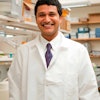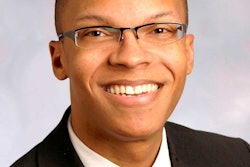As an attentive and adept middle schooler growing up in Tallahassee, Fla., Chekesha M. Liddell Watson loved nothing more than methodically maneuvering 3,000-piece puzzles into place. While she was fascinated by how the puzzle pieces made up the whole, her parents Amos, a college administrator, and Patricia, a social worker, eyed the “big picture.” They quickly noticed their daughter’s “good comprehension of spatial relationships,” recalls Watson, now an associate professor of Materials Science and Engineering at Cornell University.
Her parents were the first to tell her to consider a career in engineering, Watson says. In 2007, nearly two decades later, the White House also took notice. The materials engineer and 20 others were honored with the Presidential Early Career Awards for Scientists and Engineers. The award is the nation’s highest honor for professionals at the outset of their independent scientific research careers.
In Watson’s case, the making of an award-winning scholar and engineer took root in enrichment and with robots.
From about the age of 8, Watson’s parents filled her summers with math and science enrichment workshops. By her junior year in high school, Watson was building robots at a Massachusetts Institute for Technology summer camp with other budding minority scientists. By the time Watson entered Spelman College, where she majored in chemistry, she had already co-authored a paper with and worked alongside one of the Kennedy Space Center’s top female scientists. She continued her relationship with NASA during college with a NASA Women in Science and Engineering Scholarship. Interning in NASA’s microchemical analysis laboratories helped lead Watson to nanoscience, the study of manipulating matter on an atomic and molecular scale.





















